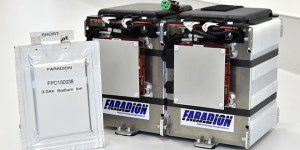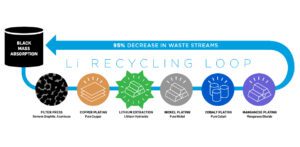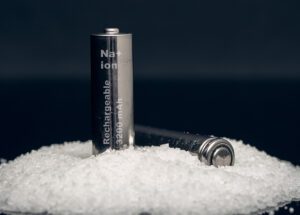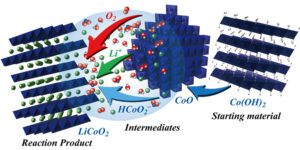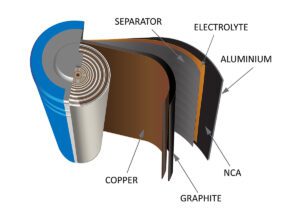The British firm Faradion is working on sodium-ion batteries, which show promise as a successor to Li-ion technology. In collaboration with Williams Advanced Engineering, which provided batteries for the Formula E electric race car, Faradion has built a sodium-ion-powered electric bike to prove the concept. Sodium-ion intercalation batteries use the same process of ion insertion… Read more »
Search Results Found For: "sodium"
Aqua Metals and 6K Energy collaborate to establish sustainable US battery supply chain
Aqua Metals has developed a process for recycling lithium-ion batteries that it says is much cleaner, more efficient and more cost-effective than current methods (see our recent in-depth interview with company execs). Now Aqua has signed a strategic supply agreement with battery materials supplier 6K Energy to establish a more sustainable supply chain for battery… Read more »
Aqua Metals is building a more sustainable battery recycling ecosystem
Q&A with Aqua Metals execs Steve Cotton and David Regan Regardless of the claims made in Facebook memes, Li-ion batteries are eminently recyclable, and current recycling methods cause far less environmental damage than the well-documented depredations of the petroleum industry. However, as sustainability is central to the mission of the EV industry, we need to… Read more »
INFICON’s ELT Vmax enables individual leak testing for mass-produced EV battery cells
INFICON, a manufacturer of leak testing solutions, introduces the ELT Vmax—a leak detector specifically designed for integration into leak testing systems for the industrial high-speed mass production of lithium-ion and sodium-ion battery cells. The ELT Vmax tests the leak tightness of all battery cells filled with liquid electrolyte—lithium-ion or sodium-ion—in all formats, including prismatic, round… Read more »
MIT chemists develop an organic battery cathode for EVs
MIT researchers have designed a new lithium-ion battery using an organic cathode that contains no cobalt or nickel. In a new study, the researchers showed that this material an conduct electricity at similar rates as cobalt batteries, and could be produced at much lower cost. The new battery also has comparable storage capacity and charges… Read more »
Sunrise New Energy receives approval for two Na-ion anode patents for EV batteries
China-based Sunrise New Energy, a manufacturer of anode material, has announced that its subsidiary, Sunrise (Guizhou) New Energy Materials, has received preliminary approval from the National Intellectual Property Office for two separate patents related to anode materials for sodium-ion batteries. Sodium-ion batteries use hard carbon anodes, but low specific capacity, compactness, and expansion limitations plague… Read more »
How Umicore is ensuring sustainability in the North American EV battery chain
Q&A with Umicore’s Robert Privette Umicore traces its roots to a Belgian mining company formed in 1906. Since then, it has moved on from mining to a variety of high-tech pursuits including refining, recycling and the manufacture of specialized metal products. Today it’s one of Belgium’s largest companies, and has a strong presence in e-mobility,… Read more »
Cathode active materials for lithium-ion batteries could be produced at low temperatures
Layered lithium cobalt oxide (LiCoO2), a key component of lithium-ion batteries, has been synthesized at 300° C in 30 minutes by a team of researchers at Hokkaido University and Kobe University. Lithium cobalt oxide is used for the cathode in lithium-ion batteries and traditionally, the synthesis of this compound takes 10-20 hours to complete at… Read more »
Laser treatment improves battery performance in Saudi study
Researchers at KAUST, a Saudi Arabian private research university, have used laser pulses to increase MXene’s energy capacity for enhancing next-generation battery anodes. The team, led by Husam N. Alshareef and Ph.D. student Zahra Bayhan, discovered that the chemical change that forms molybdenum oxide within the structure of an alternative electrode material known as MXene… Read more »
A closer look at graphite—its forms, functions and future in EV batteries
Q&A with Graphex CEO John DeMaio Reading the EV press, you might assume that lithium, cobalt and nickel are the stars of the battery show—they get a lot of coverage, as pundits debate the relative merits of NMC and LFP cathode chemistries and agonize over looming shortages. Meanwhile, over in the anode, there’s an unsung… Read more »




